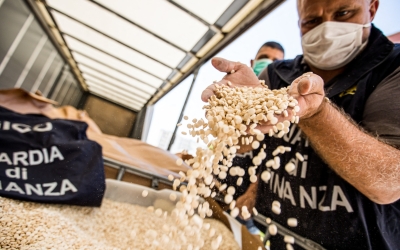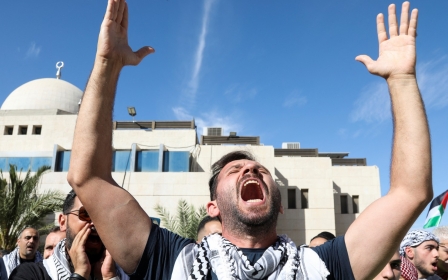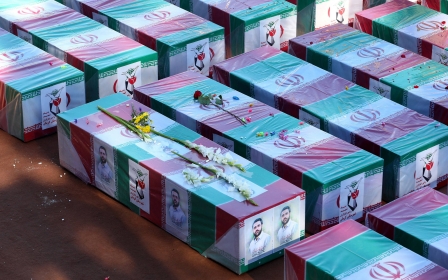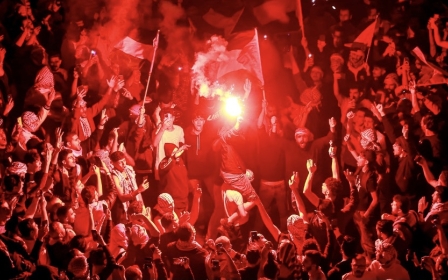Jordan carries out strikes on Iran-linked drug dealers in Syria, say intelligence sources
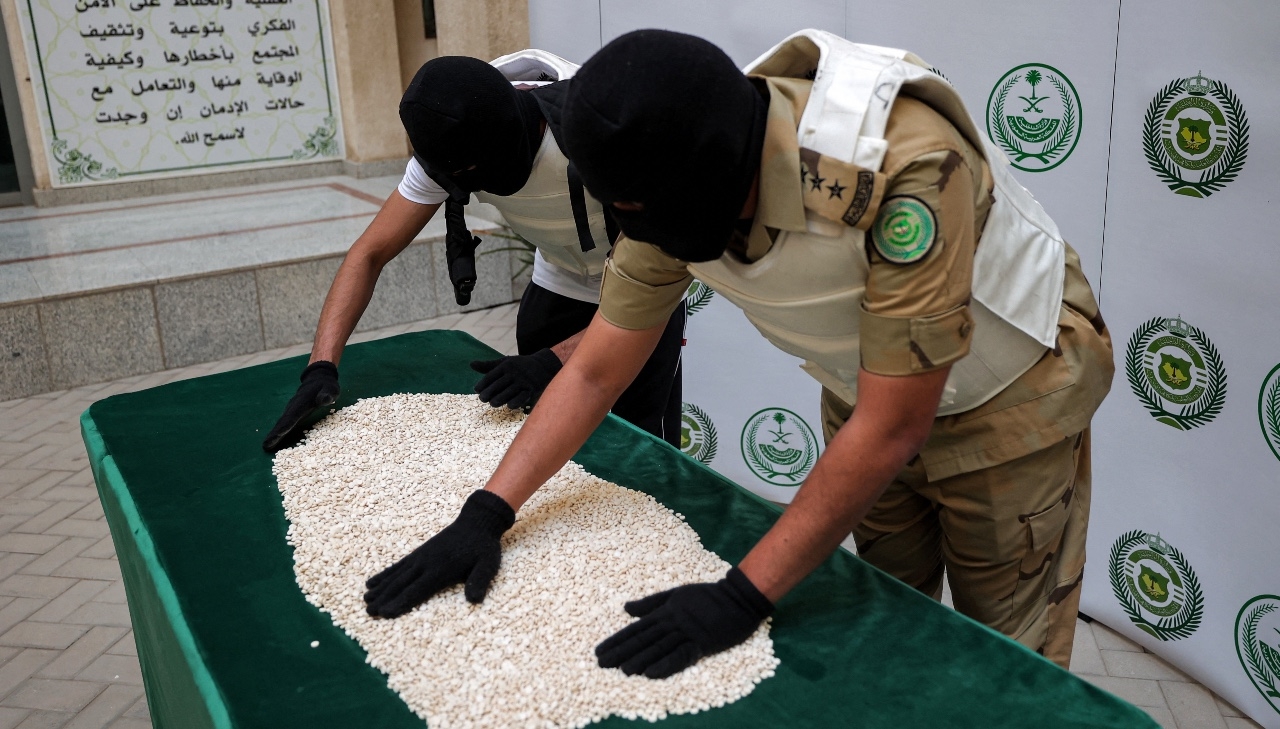
Jordanian jets on Tuesday conducted four air strikes inside Syria in the second such raid within a week, in a major escalation between the two countries.
According to reports the targets were suspected farms and hideouts of Iran-linked drug smugglers, regional intelligence sources have said.
Last week, Jordan's army targeted drugs and weapons smugglers, killing a number of them in clashes that began as they infiltrated from Syria across Jordan's northern border.
The latest strikes are part of a growing campaign against drug dealers by the Jordanian army that has resulted in clashes with groups who allegedly have links to pro-Iranian militias in Syria.
The Jordanian army has said it has been pursuing large numbers of smugglers carrying hauls of drugs and weapons, who are regularly trying to cross the border.
The army has stepped up its campaign after protracted clashes with dozens of heavily armed infiltrators last month.
Jordan and its western allies have sought to blame the Lebanon-based Hezbollah and other pro-Iranian militia who control much of southern Syria for the surge in smuggling.
'Jordan knows the country that stands behind this. It's Iran that is sponsoring these militias'
- Jordanian army statement
"Jordan knows the country that stands behind this. It's Iran that is sponsoring these militias. These are hostile military actions against Jordan on its territory," said Samih Maayteh, a former minister briefed by officials on developments, speaking to Reuters.
The army said it would "continue to track these armed groups and prevent any attempt to undermine the kingdom's national security".
"The last few days have seen a spike in these operations that are changing from infiltration attempts and smuggling to armed clashes, with the goal of crossing the border by force and targeting border guards," the army statement added.
Last year, the US imposed sanctions on two cousins of Syrian President Bashar al-Assad for trafficking Captagon, an addictive amphetamine drug, whose usage has proliferated across the Middle East for years.
Multi-billion business
The production and export of Captagon has boomed in Syria amid the fallout of the bloody civil war. Captagon is now Syria's most valuable export and a key source of income for the government in Damascus.
Estimates of the value of the drug trade vary, but it’s believed to be in the billions of dollars.
In April last year, the New Lines Institute said it had compiled data that estimated 2021's entire Captagon retail market to be worth at least $5.7bn, based on the retail value of annual Captagon seizures.
"However, this market estimate is extrapolated from somewhat limited data, solely calculated from reported seizures (mostly large seizures, thus excluding a large number of street-level seizures that go unreported) and the average price per tablet in the region, indicating that the total value of the Captagon trade could be much larger," it said.
Captagon is known on the street in the Middle East as Abu Hilalain, named for its distinct two crescents impressed on each pill. It costs a few dollars to produce and sells at almost triple the price.
The stimulant began to be used widely in Syria during the civil war, and the country has become a major exporter to other markets, primarily in the Middle East and particularly Saudi Arabia.
Captagon was a legal drug for almost 25 years. It was developed in West Germany in 1961 and was prescribed for the treatment of depression and for ADHD in children. However, in 1986, the World Health Organisation labelled it a controlled substance.
Bulgaria was for a long time a significant producer of the drug, but a crackdown on laboratories forced the production to shift to Syria in the late 1990s and early 2000s.
Now it is believed that Captagon production is condoned and facilitated by the Syrian government.
Middle East Eye propose une couverture et une analyse indépendantes et incomparables du Moyen-Orient, de l’Afrique du Nord et d’autres régions du monde. Pour en savoir plus sur la reprise de ce contenu et les frais qui s’appliquent, veuillez remplir ce formulaire [en anglais]. Pour en savoir plus sur MEE, cliquez ici [en anglais].


